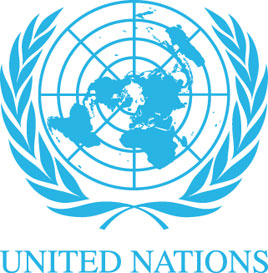UN says Nepal parties should fix president's powers
 Kathmandu, Nov 7 : Ignoring a rebuff by Nepal's ruling parties, who have asked the UN not to intervene in the republic's internal matters, a top UN official is suggesting that the parties fix the powers of President Ram Baran Yadav, whose action almost six months ago triggered a fresh crisis in the Himalayan nation.
Kathmandu, Nov 7 : Ignoring a rebuff by Nepal's ruling parties, who have asked the UN not to intervene in the republic's internal matters, a top UN official is suggesting that the parties fix the powers of President Ram Baran Yadav, whose action almost six months ago triggered a fresh crisis in the Himalayan nation.
Karin Landgren, chief of the UN Mission in Nepal (UNMIN) has suggested to the UN Security Council during her briefing on Nepal Friday that "it would appear to be in the interest of the democratic process for the parties to agree, pending the promulgation of the new constitution, on the ambit of presidential authority".
Nepal is expected to promulgate a new constitution by May 2010, a step regarded as being the cornerstone of peace negotiations started in 2006 after the Maoist insurgents agreed to end their 10-year "People's War".
However, the new statute is in danger of being derailed with the Maoists, who are now the largest party in parliament, beginning protests against the coalition government and paralysing both the state administrative machinery as well as parliament.
The Maoist anger stems from the president stepping into their quarrel with the controversial chief of the army, Gen Rookmangud Katawal, whom they tried to sack earlier this year.
However, the general was reinstated by the president, leading to the fall of the eight-month-old Maoist government.
Since then, there has been a controversy over the role of the president.
The current ruling parties say Yadav, who is the constitutional head of the government as well as supreme commander of the army, took the right decision since it was endorsed by the other parties.
The Maoists, however, say Yadav is a mere constitutional head who has no power to oppose the decisions taken by an elected government.
Since last Sunday, the former rebels started street protests that will lead to a blockade of Kathmandu valley Tuesday.
Landgren said the peace negotiations - started in 2006 - had run into a "protracted deadlock, with the added risk of confrontation". "Trust between the parties had continued to dwindle," she said.
It remains to be seen how Nepal will react to the suggestion.
On Oct 30, in his report before the UN Security Council, UN Secretary-General Ban Ki-moon had suggested that the Nepal parties should form a national government, angering the ruling alliance.
Nepal's government replied by saying that it was up to Nepal's people and parties to decide what kind of government they should have, how and under whom. (IANS)